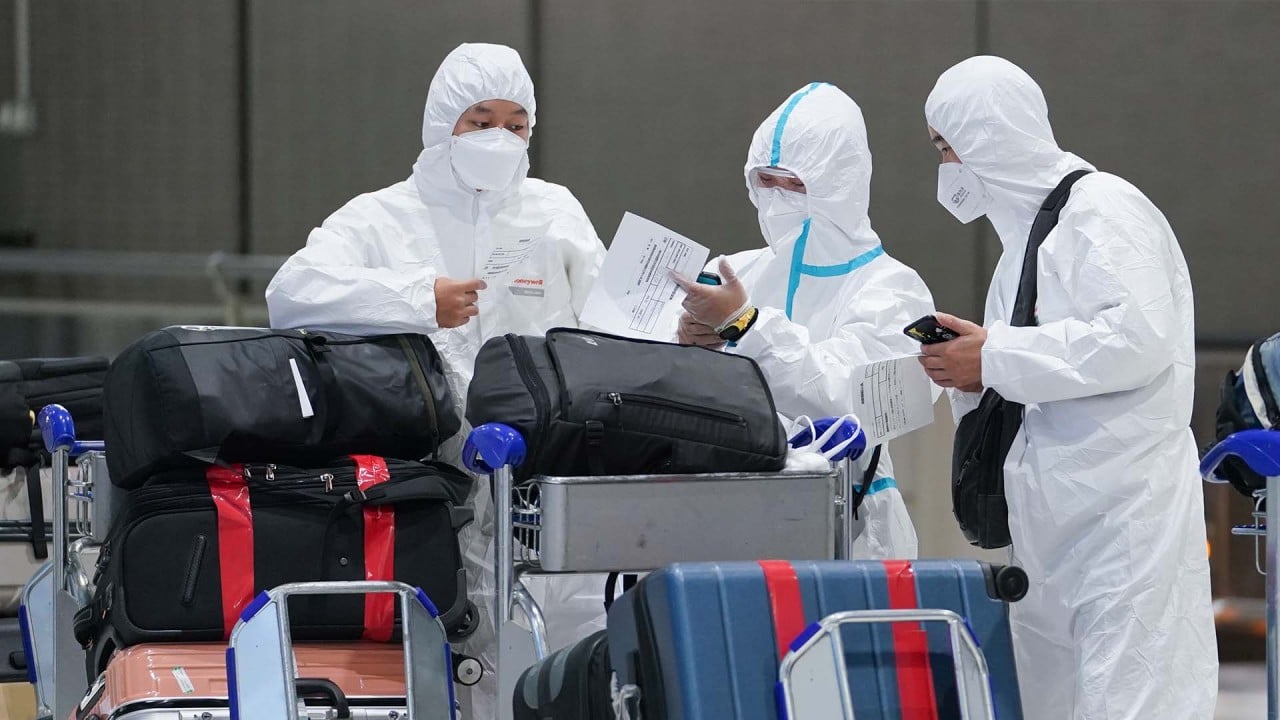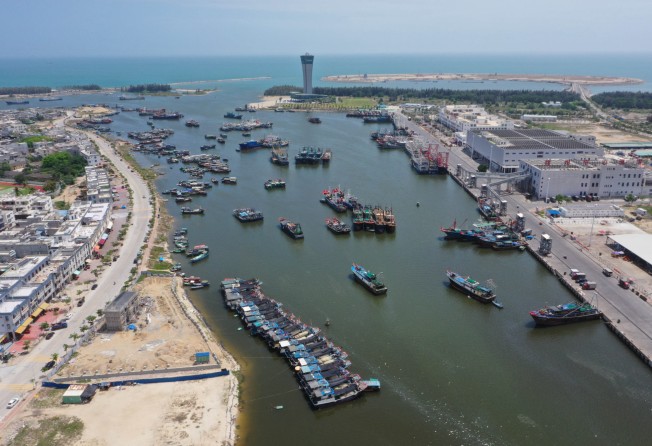
02:35
Omicron confirmed in 24 countries as new Covid-19 variant continues to spread

The World Trade Organization was supposed to have gone into critical talks this week at the 12th Ministerial Conference in Geneva. The conference, slated for November 30 to December 3, would have been the first since 2017.
A last-minute postponement of the in-person meetings due to the new Omicron variant has compounded the WTO’s woes. Even before the postponement, countries were already bracing themselves, with a crowded agenda and deep divisions on major issues.
It is not certain when the in-person meetings will resume. When they do, the odds will remain stacked against significant breakthroughs. To begin with, there has been no major agreement since the 2015 ban on agricultural export subsidies, leading some observers to warn that this is a make or break moment for an organisation that has succumbed to gridlock.
Director general Ngozi Okonjo-Iweala was hoping for “at least one or two” tangible outcomes. Southeast Asian countries had hoped that a plurilateral agreement on services would be one, as well as progress on e-commerce.
For United States Trade Representative Katherine Tai, addressing fisheries subsidies, pandemic response and WTO reform is overdue. Other countries highlight the need for more action on climate change and digital trade.
To compound matters, a looming North-South divide is obstructing progress; if not resolved, this could harm the institution irreversibly. The North-South split and the consensus requirement look likely to block a deal on waiving intellectual property (IP) rights for Covid-19 vaccines and drugs.
India and South Africa are leading a push for a temporary waiver. But the European Union is opposing the waiver, proposing instead reductions in export restrictions and expanding production under existing IP rules.
There are growing calls for trade policy to play a bigger role in addressing climate change and other environmental challenges. Both China and the US have joined the discussions but consensus is unlikely. Initiatives to phase out fossil fuel subsidies are unlikely to exceed COP26 commitments but a deal tackling plastics pollution from a trade perspective is progressing.
Fisheries subsidies are of little interest to most members but talks have dragged on for two decades. The aim is to remove subsidies that encourage overfishing, which, if unresolved, could lead to a collapse of fishing stocks.
All members agree that a rule book change is overdue for the 27-year-old organisation. The trouble is there is little agreement on how to go about it.
A top priority is to end the paralysis of its dispute settlement processes. The WTO’s Appellate Body – the final court of appeal for trade disputes – ceased operations in December 2019 after the Trump administration blocked new appointments to its panel. Tai also wants a broad overhaul but others are not prepared for major change. The upshot: expectations of progress under the Biden administration are likely to be dashed.

As a consequence of the inability to achieve consensus on numerous issues, plurilateral talks, involving only a few member states rather than all, have proliferated.
India and South Africa have challenged the legal status of these negotiations, arguing that they undermine the universality of the rules-based multilateral trading system. However, if progress is made on these initiatives, it could provide workarounds to the consensus requirement.
When the 12th ministerial conference is finally held, progress is most likely in the push to cut red tape in the services sector. The trade facilitation measures on services is likely to exceed those in the WTO’s 1995 General Agreement on trade-in Services. The Association of Southeast Asian Nations, which has struggled with liberalising services, could greatly benefit.
Digitalisation and e-commerce were small clouds on the horizon when the WTO was established, and there is a pressing need to extend coverage to keep up with a proliferation of bilateral and regional deals. Despite progress in many areas, sensitive issues such as data localisation may remain unresolved.
A temporary ban on customs duties on electronic transmissions has been renewed at each ministerial meeting, but there is no guarantee it will be next time. The developing South, led by India and South Africa, consider it to be a potential revenue stream, while supporters of the moratorium cite evidence of its economic benefits.
Overall, this is a large bundle of issues that have been postponed for a second time. Limited progress in difficult areas, such as agricultural subsidies or e-commerce, has been a feature of the WTO from the start.
Institutional reform covers the entire operation of the WTO. The key obstacle is the consensus requirement, which is being sorely tested. When the WTO was first established in 1995, the issue was overcome by the original “Quad” – comprised of the US, EU, Japan and Canada – playing a leadership role, while ensuring that all members would accept the final text.
In 2021, however, more countries from the South want to be included in the leadership group; otherwise, they stand ready to withhold their agreement.
The fundamental institutional change that is required is a way around such gridlock. The postponement of the in-person meetings is only a reprieve. For WTO members, the future of a rules-based multilateral trading system depends on deep-seated change, now more than ever.
Jayant Menon is visiting senior fellow at the ISEAS-Yusof Ishak Institute, Singapore
Richard Pomfret is professor of economics emeritus at the University of Adelaide and adjunct professor of international economics at Johns Hopkins University SAIS Europe
An earlier version was published here in the ISEAS-Yusof Ishak Institute’s Fulcrum